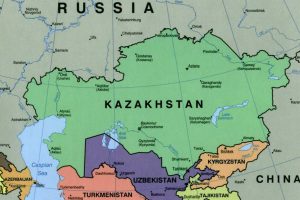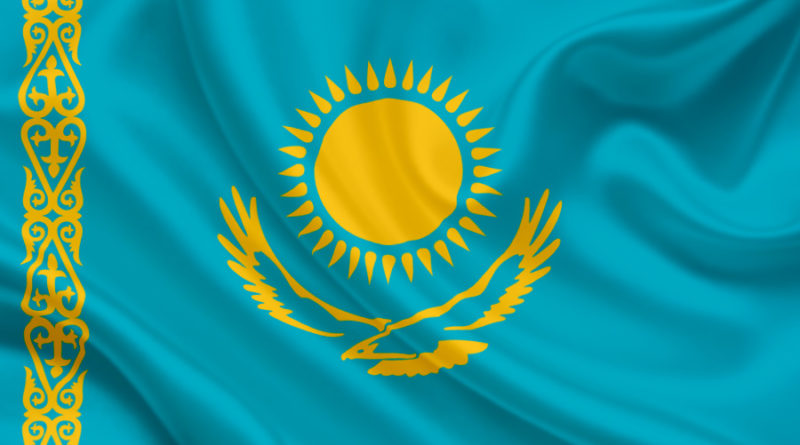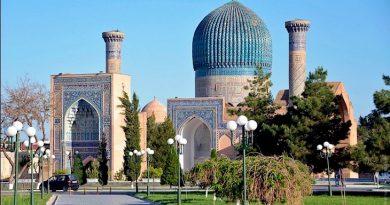Factsheet on President Kassym-Jomart Tokayev’s Interview with Egemen Qazaqstan Newspaper
ASTANA – President Kassym-Jomart Tokayev gave a big interview to the Egemen Qazaqstan national newspaper, covering the administration’s top priorities for 2024 and discussing crucial topics on the national agenda.
The interview covered the tragic January events in 2022, ambitious economic plans, and the country’s foreign policy.
Key points from the interview
On key events in 2023
- Completion of major political reforms:
- Constitutional Court began its work.
- Elections for deputies of the Mazhilis (lower chamber of Parliament) and maslikhats (representative bodies) of all levels were held under new rules.
- Elections of akims of districts and cities of regional significance were held for the first time.
- Elections of heads of villages and cities of regional significance continued, resulting in about 700 rural akims being elected last year.
- The construction of schools, including “comfortable schools”, began throughout the country, and medical facilities are being built in villages.
- The Social Code has been introduced.
- A special payment has been approved for persons employed in harmful working conditions.
- The salaries of medical workers, teachers at schools, colleges and kindergartens have been raised.
- A law regulating contributions to children from the National Fund has been adopted.
- A new methodology for determining the minimum wage was adopted.
On key tasks facing the country in 2024
- The strategic goal is to double GDP by 2029.
- Continuation of a constructive and balanced foreign policy:
- Kazakhstan will chair several authoritative international organizations at once, including the Shanghai Cooperation Organization, the Collective Security Treaty Organisation, the Conference on Interaction and Confidence-Building Measures in Asia, the Organisation of Turkic States, the International Fund for Saving the Aral Sea, and the Islamic Food Security Organisation.
- Hosting of the World Nomadic Games in Kazakhstan.
- Preparation of a multi-volume book on the history of Kazakhstan will be completed.
On tragic January events in 2022 and political system at that time
- The tragic events of January were caused by many years of unresolved socio-economic problems and general stagnation, which turned into the degradation of both the authorities and society.
- The Prosecutor General’s Office investigation revealed that the development of the January events exhibited a ‘wave-like’ pattern. Initially, there were rallies in the Mangistau region, which later spread to other regions. Despite the efforts of the central authorities and akimats, the situation in the country became destabilized.
- Extremists, criminals, and religious radicals collaborated in the coup d’état attempt. They aimed to spread fear among citizens, disorganize state institutions, undermine the constitutional order, and, ultimately, seize power.
- The Security Council decided to appeal to the Collective Security Treaty Organization (CSTO) for the introduction of a peacekeeping contingent into our country, for the period necessary to ensure stability and security.
- There were attempts to impose a model of dual power, which were notably purposeful and well-organized. In the current political situation of “transit of power,” political manipulators formed a certain parallel centre of power. This situation became one of the preconditions for the January crisis, because the conspirators attempted to exploit the contrived model of dual power, or ‘tandem,’ for their own interests.
On political reforms
- One of the primary tasks of the reforms was to create a fairer and more balanced political system.
- Any changes or additions to the Constitution can only be submitted to a referendum or to Parliament with the corresponding opinion of the Constitutional Court.
- The provision for a single seven-year term of office for the President shall remain unaltered.
- The powers of the Mazhilis (lower chamber of Parliament) have been significantly expanded and it has been formed according to a new electoral model – party lists and single-mandate constituencies.
- The one-term presidency provision in the Constitution is unchangeable.
- Systemic measures are being implemented to prevent and eliminate violence against women and children.
- Comprehensive measures have been taken to open doors for young people in legislative and executive power structures.
- Quotas for women, youth, and persons with special needs were introduced on party ballot papers and in the distribution of deputy mandates.
- The reforms have strengthened the system of human rights protection:
- Legislative amendments have been adopted to strengthen the independence of the courts.
- The categories of cases for trial by jury have been expanded.
- The institution of the Human Rights Ombudsman, which has been given constitutional status, is fully operational in the country.
- A second decree on human rights has been signed last December.
On economic development
- In the September address, the government was instructed to identify a list of possible large-scale projects and to prepare an infrastructure development plan. These projects are being prepared, and consultations are being held with large companies, institutional investors, and the expert community.
- The task of attracting investment, including through privatisation and asset recovery, needs to be addressed.
- The government is drafting a new tax code to reset the relationship between the State and business.
- There is a need to tighten regulations on consumer credit and the activities of debt collection companies.
- To protect the rights of borrowers, amendments to the Credit Act have been drafted.
- The powers of the banking ombudsman will be extended.
On public utilities and nuclear power
- The modernization of the country’s engineering infrastructure is gradually being tackled.
- The immediate task is to prevent serious accidents and interruptions in the heat supply to households. The ultimate goal is to introduce new capacities, systematically renew networks, and modernize the entire municipal sphere.
- Kazakhstan will hold wide public hearings on nuclear power.
On Kazakhstan’s foreign policy
- Kazakhstan is committed to protecting its national interests and addressing strategic challenges.
- Interest in Central Asia is growing significantly worldwide, leading to an increased demand for the C5+ dialogue platform. Kazakhstan will host the next Consultative Meeting of the Heads of State of Central Asia this year.
- In June, the Astana International Forum will bring together heads of State and global companies.
- The agreement between Kazakhstan and France to hold a One Water Summit on the sidelines of the UN General Assembly’s high-level session is of great significance.
- Russia is a key ally and strategic partner for Kazakhstan; over the past 30 years, we have built a strong foundation of interstate relations, evidenced by over 300 agreements in various fields.
- Kazakhstan and China maintain active relations based on friendship, good neighborliness, and a long-standing strategic partnership.
- Kazakhstan’s strategic geographical position, situated between the East and West and sharing a border with China, presents extensive prospects for the transit of Chinese goods in various directions.





